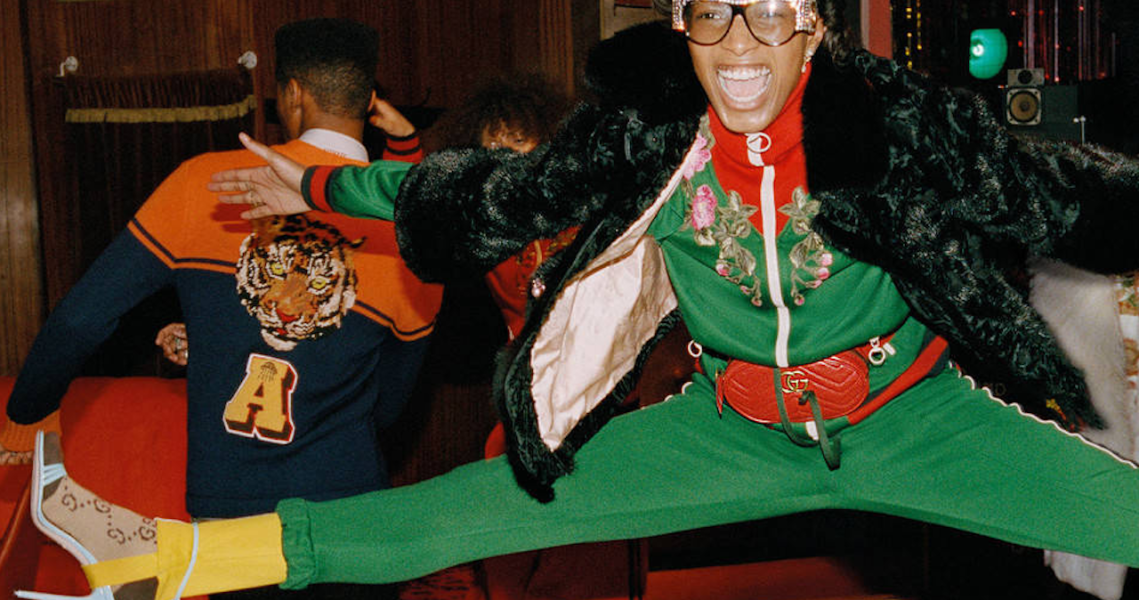Since Black Friday is the biggest shopping blitz in the U.S., mass brands and retailers are trying to stretch out the weekend for as long as possible. High-end luxury and streetwear, however, have kept their distance from the holiday, given their hesitance to discount items to protect their image of exclusivity.
All in on e-commerce
Altogether, in-store sales on Black Friday were down by nearly 2 percent year-over-year, while online sales were up by almost 24 percent. This uptick in online shopping was particularly notable in fashion, which is the second-most-shopped category on Black Friday after electronics, according Burns Group’s BrandInformers.
“The biggest changes in the fashion world are two-fold: First, the amount of fashion retailers jumping into the Black Friday/Cyber Monday fray has increased significantly,”said Nick Drabicky, head of agency strategy at advertising agency PMG. “Secondly, the timeframe continues to increase. First it was just Black Friday, then it was Black Friday and Cyber Monday, then came Giving Tuesday and the afternoon of Thanksgiving. Now, some offers are starting the week before. At the end of the day, the goal or strategy hasn’t really changed: Incentivize customers to buy at a point in which they have the appetite to do so.”
There was also a significant shift toward mobile shopping this year, with $2.1 billion in sales coming from smartphones. Over the weekend, more than half a million new users shopped through the top 10 shopping apps on Apple’s App Store, which include Amazon and Walmart.
The shift to online shopping for consumers is particularly pertinent to young DTC fashion brands that focus on marketing and sales through social media and e-commerce. Brands like Eloquii had site-wide discounts of up to 50 percent, and Everlane rolled out a “Choose What You Pay” campaign.
“Given the rise of mobile and the ability to now shop on social platforms like Instagram, consumers are less inclined than ever to participate in the Black Friday brick-and-mortar battle,” said Anthony Cospito, head of strategy at digital marketing agency Moving Image & Content.
Luxury’s Black Friday resistance
But other areas of fashion remain somewhat distant from the excitement over Black Friday. Brands from the worlds of high-end luxury fashion and premium streetwear both saw little to gain from participating in Black Friday, according to Highsnobiety’s editorial director Jian DeLeon.
Most of the Black Friday discounts on luxury and streetwear fashion this year came from multi-brand retailers and e-commerce platforms carrying luxury goods like Farfetch, Ssense and Matchesfashion, which offered discounts of up to 10 percent off the whole catalog, and streetwear retailers like Slam Jam Socialism, which held similar sales. Luxury and streetwear brands, however, largely sat out. Of the top five most popular luxury brands ranked by Luxe Digital — Gucci, Chanel, Louis Vuitton, Hermès and Rolex — none offered any Black Friday deals through their own stores.
“Our consumer shops in a world that runs almost parallel to Black Friday,” DeLeon said. “The majority of brands and consumers who actively participate in it are the exact opposite of the premium, luxury or independent streetwear brands favored by our audience. They don’t need to be encouraged to spend their money by luring them with sale prices and deals.”
For DeLeon, this comes down to high-fashion’s and streetwear’s resistance to discounts and sales, and the hype and exclusivity that are key to a product’s appeal. Deep discounts may work for mass brands looking to get as many customers through as possible, but for brands that are more concerned with cultivating a certain image, that strategy is ineffective.
“There’s a different psychology at work — it’s about creating energy around specific products that will only be around for a limited time, or are only available at certain locations,” DeLeon said. “Markdowns can almost deter this type of consumer, as it mars the aspirational appeal of a brand or product. As they say, ‘Gucci don’t go on sale.'”




